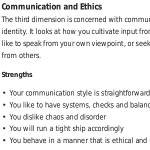Teamwork and Engagement

Consistently Create High Performing Teams
By combining the predictive data from 4G with people's skills and availability, it's possible to create high performing, cohesive and optimised teams to suit any working environment as part of a scalable and repeatable process. Extending this further, 4G defines a number of high performance team blueprints that can be easily applied across a business and adapted to suit multiple scenarios. Read more »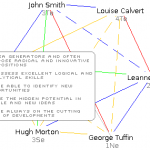
Maximise Engagement, Collaboration and Performance
Through the use of predictive business processes that enhance decision making, team performance and group cohesion, 4G enables a consistent and scalable approach to realising the full potential of engagement and collaboration. These processes add actionable insights and decision support whilst building on the results generated from existing initiatives. Read more »Recruitment and Selection

Hire for Attitude and Train for Skills
Rather than hiring for skills and training for attitude, 4G makes it possible to hire for attitude and fit (both cultural and with managers and colleagues) and to then train for skills. Because 4G makes hiring for attitude and fit possible, training activities focussed on skills become more achievable, enhancing both recruitment and training outcomes in the process. Read more »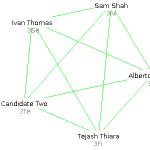
Improve the Success Rate of Selection Processes
By predicting candidate and team fit, it is possible to know the type of relationship a candidate will have with their manager and colleagues in advance of any hiring decision. This provides decision makers with predictive analytics and foresights that enhance selection outcomes. Whilst the failure rate of hiring decisions won't be accounted for by relational and cultural fit alone, these factors will explain a significant proportion of recruitment outcomes. Read more »Performance Management
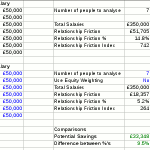
Link Behaviour to KPIs and Financial Metrics
Through the use of the 4G Relationship Friction metric, it's possible to quantify the cost of team work in financial terms and link this data to other quantifiable measures of performance. By linking team behaviour data to financial metrics and KPIs, tangible improvements in performance can be quantifiably demonstrated and the true ROI from developmental activities can be easily calculated. Read more »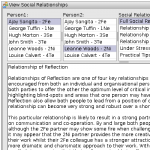
Objective Performance Management
Given the inevitable role that subjectivity plays in performance management, the use of 4G Social Relationships and Relationship Friction provide a qualitative and quantitative weighting factor to raise the objectivity of the performance management process. A more objective performance management process creates better analysis and decisions about people, lifting performance in a quantifiable and demonstrable manner. Read more »Change Management
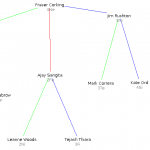
Improve the Success Rate of Change Management
4G makes it possible to identify, in advance of any change work, which individuals will be change champions, pioneers, early adopters or sceptics. Knowing who is likely to support or resist any proposed change in advance of it's implementation allows for better communications and planning, along with raising the success rate of change initiatives. Read more »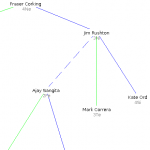
Optimise the Human Element of Business Processes and Communications
By comparing a particular change objective against data from Social Groups, it is possible to see if the culture in question is well aligned or not and a more successful path to realising the change can be mapped out, raising efficiency and removing barriers to change. Through a combination of predictive analytics, business processes and decision support, 4G offers insights and recommendations about optimising the behavioural, relational and cultural dimensions of change. Read more »Culture and Strategy

Align Strategy and Culture
Given the multitude of factors that influence culture, the ongoing and combined use of the first 5 4G business processes lay the foundation to shape a culture that is better integrated and aligned with strategy. Read more »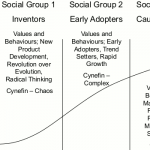
Link the Human and Operational Elements of Business
4G Social Profiles, Relationships and Groups are proxies for an organisation's Resources, Processes and Strategy. By providing a way to link human factors to their operational equivalents, 4G provides new insights, processes and inputs into organisational design and outlines a number of processes that create greater alignment between strategy and culture. Read more »Training and Development
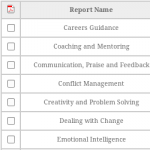
Generate Economies of Scale
and Economies of Learning
4G uses a common theoretical foundation for all of it's 500,000 words of training and development materials, coaching modules and accreditation resources. This shared foundation means that each new learning activity builds on the previous, simultaneously creating economies of learning and economies of scale. Read more »